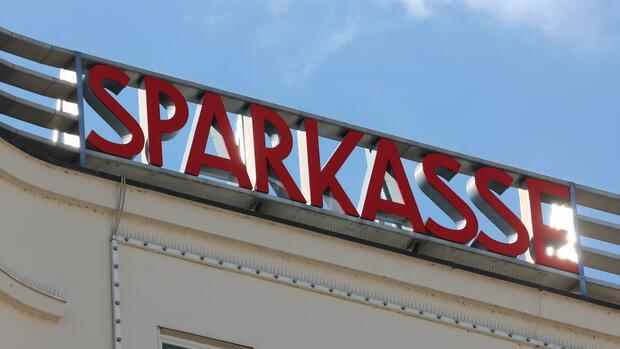Despite the pandemic and low interest rates, the savings banks achieved a “respectable result” in Schleweis’ assessment in 2021.
(Photo: dpa)
Frankfurt The German savings banks fear that the Ukraine war will lead to social upheaval in Germany. According to Helmut Schleweis, President of the German Savings Banks and Giro Association, consumers will also feel the economic consequences of the attack.
Schleweis speaks of a “turning point” and above all warns of the indirect economic consequences of the war: “There will be significant second and third round effects. These are only slowly becoming noticeable, but they will probably weigh on us in the longer term,” he emphasized on Wednesday at the annual press conference of the DSGV.
It is not only about the rapidly increasing oil and energy prices, but also about the role of Russia and Ukraine as wheat exporters. The logistics industry and thus the supply chains would also be affected by the war. The consequence of all these burdens: The DSGV fears that inflation in Germany could rise to up to six percent this year.
According to Schleweis, the sanctions against Russia are “correct and indispensable”. However, the DSGV President also warns: “We shouldn’t believe that there aren’t repercussions on ourselves. That is why it is so important that these sanctions are designed in such a way that they can be sustained over the long term. Because withdrawing is out of the question.” The savings banks expect that the price increases will primarily affect energy-intensive companies that are heavily involved in Russia.
Top jobs of the day
Find the best jobs now and
be notified by email.
But German consumers would also feel the economic consequences of the war: “We expect that around 60 percent of German households will have to use their entire disposable income – or more – every month,” Schleweis warned. It is therefore right that the federal government is preparing relief from high energy costs, wants to pay out an initial subsidy for basic security and has also announced targeted aid for companies that are particularly affected.
>> Read here how Germany is preparing for a wave of refugees
For the next few weeks, the DSGV expects the largest wave of refugees in Germany since the Second World War. “The challenges will be significantly greater than in 2015,” says Schleweis, emphasizing that the reception and integration of the refugees would be a test for the whole country.
Savings banks are demanding more European sovereignty
According to the President of the Savings Bank, many of the refugees will “stay longer than they would like to.” It is all the more important to enable these mostly very well trained and extraordinarily willing people to start work quickly.
From the point of view of the Savings Banks Finance Group, the experiences of the Ukraine war must be a “wake-up call for Europe” to free itself from one-sided energy, raw material and digital dependencies and to achieve more European sovereignty. Schleweis criticized the fact that Germany and large parts of the EU have become dependent on them in recent years and are therefore open to blackmail – especially on deliveries of fossil fuels from Russia. This strategic mistake must be corrected as soon as possible.
“In addition to diversification in supply relationships, we will have to switch to renewable energies and, above all, save energy. Anyone who has not yet been convinced by the goal of climate protection must support this path to greater energy independence now at the latest,” said Schleweis. This will have to go much faster and require a lot more capital than previously planned.
Increasing profits over the past year
The Savings Banks’ balance sheet for the past year is more optimistic than looking to the future. Despite the pandemic and low interest rates, according to Schleweis, they achieved a “respectable result” in 2021. The financial group’s net profit rose by almost 25 percent to 1.8 billion euros.
The return on equity before taxes increased from 5.5 percent to 6.1 percent. There have also been small advances in terms of efficiency. Last year, the savings banks had to spend 66.2 cents to earn one euro. In 2020, the so-called cost-income ratio was 66.8 percent.
With a total of 197.3 billion euros, the savings banks granted 5.6 billion euros more in new loans in 2021 than in the previous year. New business with private housing loans rose by almost ten percent to EUR 73.4 billion. The financial assets of savings bank customers were 80 billion euros higher at the end of 2021 than at the beginning of the year. This was the second highest increase in value in history after the previous year.
Last year, for the first time, the Savings Banks succeeded in increasing net commission income more than net interest income declined. A minus of 314 million euros in interest income is offset by commission income of 560 million euros; the result was a plus of around 246 million euros.
However, Schleweis emphasizes that the forecasts for the coming years do not confirm this trend: “The Savings Banks have not yet bottomed out, there will still be a few difficult years. In particular, the indirect consequences of the war will lead to significant burdens.”
More: Banks prepare for “major influx” of Ukrainian refugees
